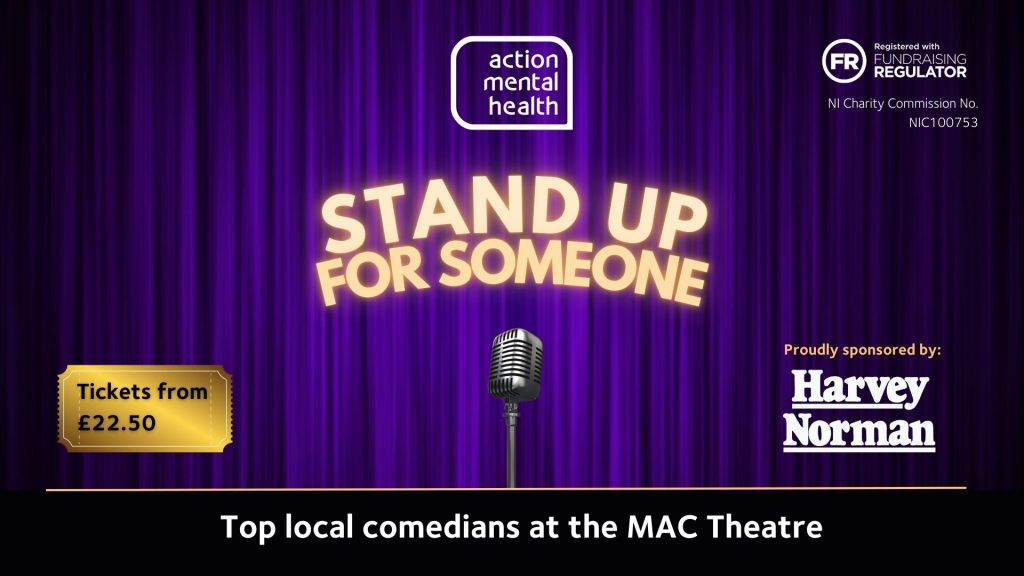We all enjoy a good joke and can attest to feeling better after a bout of laughing with friends or family, so it’s good to know that the science agrees. Indeed, from research carried out to date on laughter, it appears that sharing a giggle with people can do wonders for our mental health and helps us feel safer and more connected. Plus, it’s fun, so what’s not to like?
According to psychologist, Dr Robert Provine – the world’s leading scientific expert on laughter – the positive emotions we share when we laugh with people is critically important for social cohesion. Basically, when we laugh with those around us, we bond with them and make connections, which reduce feelings of isolation and help boost our mental wellbeing. In short, we form a community and/or a network in which we feel safe and at ease.
Describing laughter as “a social vocalization that binds people together,” [1] interestingly, Dr Provine found that the key stimulus for laughter was usually another person. I.e. we spontaneously laugh more in relation to the person, than what it is they’re actually saying. Laughter is also much more common in social situations than in solitary ones, so we tend to laugh more often when we’re with others than when we’re alone.
Further research shows that, while it “is commonly accepted that laughter produces psychological benefits, such as improving affect, depression, anxiety, and stress,” [2] there are also physiological benefits to laughing.
Indeed, recent studies have indicated that laughter can improve heart health, with the effects of a good chuckle expanding our arteries and increasing the flow of oxygen around the body. [3]. Other physiological benefits of laughter include stimulating the muscles and lungs as well as triggering the release of feel-good endorphins from our brain.
Long-term, laughter can also improve our immune system: “Negative thoughts manifest into chemical reactions that can affect your body by bringing more stress into your system and decreasing your immunity. By contrast, positive thoughts can actually release neuropeptides that help fight stress and potentially more-serious illnesses.” [4]. It can even help to relieve pain, as laughter can assist the body in producing natural painkillers.
Counselling Coordinator – Casual Team at Action Mental Health, Lauren Darragh, said laughter was a great way of connecting people and reducing isolation – which is a key part of the work carried out by her team.
“Studies have shown that laughing also reduces a lot of stress hormones,” she said. “It can impact the dopamine and serotonin levels in the brain. Low levels of these are often associated with depression and low mood, so boosting these through laughter can have a positive effect on our mood.”
She added that laughter could also help to increase people’s resilience and tenacity. Indeed, by reducing stress and boosting the immune system, laughter allows us to refocus – all of which, with our enhanced mood, ultimately builds a more resilient character.
“I think life is about fun as well as overcoming the hardships,” said Lauren. “It’s about laughter and lightness and joy. As a therapist, you hold that hope that there are the positives. With laughter, the huge thing for me is the bond that you find with other people through laughing together. It can show that the person is safe and it encourages connection and communication and reduces isolation.
“At Action Mental Health the majority of our work is based on removing isolation. It’s about encouraging connectedness and counselling is part of that.”
With Action Mental Health’s ‘Stand-up for Someone’ comedy nights planned for April, these offer a great opportunity to enjoy a laugh with friends and family while raising funds for vital mental health services.
“I think, particularly in Northern Ireland, we have a very good sense of humour,” said Lauren. “It’s a part of our culture. Sharing a laugh with someone bonds you. It’s how people make connections and what we know about mental health is that people’s mental health deteriorates without connection. Anything that encourages connection is part of that and something to celebrate.”
https://themaclive.com/event/stand-up-for-someone

References
[1] Provine, R. (2000) The science of laughter. Available at: https://www.psychologytoday.com/gb/articles/200011/the-science-laughter
[2] Louie, D; Brook, K; Frates, E. (2016) The Laughter Prescription: A Tool for Lifestyle Medicine. Am J Lifestyle Med. June 23; 10 (4) :262-267. DOI: 10.1177/1559827614550279. PMID: 30202281; PMCID: PMC6125057. Available at: https://pmc.ncbi.nlm.nih.gov/articles/PMC6125057/
[3] British Heart Foundation. (2023) How joy affects health: is laughter the best medicine? Available at: https://www.bhf.org.uk/informationsupport/heart-matters-magazine/wellbeing/how-joy-affects-health
[4] Mayo Clinic. (2023) Stress relief from laughter? It’s no joke. Available at: https://www.mayoclinic.org/healthy-lifestyle/stress-management/in-depth/stress-relief/art-20044456